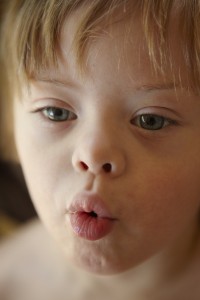Apraxia of Speech in Children – What You Need to Know
What is Apraxia of Speech in Children? With apraxia of speech, a person finds it difficult or impossible to move his or her mouth and tongue to speak. This happens, even though the person has the desire to speak and the mouth and tongue muscles are physically able to form words. Childhood apraxia of speech (CAS) is a motor speech disorder, where the child has a problem saying sounds, syllables and words. She knows what she wants to say, but her brain has difficulty coordinating the muscle movements necessary to say those words.
How is Apraxia of Speech in Children diagnosed?
First, an audiologist should perform a hearing evaluation to rule out hearing loss as a possible cause of your child’s speech difficulties. A certified Speech-Language Pathologist then conducts an evaluation. This is done through specific exams that measure oral mechanisms such as pursing lips, blowing, licking lips, tongue movement, and a full mouth examination. Often, a thorough exam also includes observation of the child eating and talking. The SLP can diagnose childhood apraxia of speech, if applicable, and rule out other speech disorders.
What are the Types of Apraxia of Speech in Children?
There are two main types of apraxia of speech: acquired apraxia of speech and developmental apraxia of speech.
- Acquired apraxia of speech can affect a person at any age, although it most typically occurs in adults. This condition causes people to loose their speech-making abilities they once possessed. The main cause is due to damage to the parts of the brain that are involved in speaking. The disorder may result from a stroke, head injury, tumor, or other illness affecting the brain.
- Childhood apraxia of speech (CAS) occurs in children and is present from birth. It appears to affect more boys than girls. It affects a child’s ability to form sounds and words. The majority of children with childhood apraxia of speech will experience significant improvement with the proper speech therapy treatment.
What are the symptoms of Apraxia of Speech in Children?
There are generally a variety of speech-related symptoms associated with childhood apraxia of speech. These might include:
- Difficulty stringing syllables together in the appropriate order to make words, or inability to do so
- Minimal babbling during infancy
- Difficulty saying long or complex words
- Repeated attempts at pronunciation of words
- Speech inconsistencies, such as being able to say a sound or word properly at certain times but not others
- Incorrect inflections or stresses on certain sounds or words
- Distorting of vowel sounds
- Omitting consonants at the beginnings and ends of words
- Seeming to grope or struggle to make words
How is Apraxia of Speech in Children Treated?
Children with apraxia of speech will not outgrow the problem on their own. Speech language therapy is necessary for these children, and for people with acquired apraxia of speech who do not spontaneously recover all of their speech abilities. The speech therapy is tailored to each individual child, and is designed to treat other speech or language problems that may occur together with apraxia. Each person responds differently to therapy, and some people will make more progress than others. People with apraxia of speech usually need more frequent and intensive one-on-one therapy.
For more information on Apraxia of Speech in Children, check out these helpful resources:
Guide to Diagnosing Your Child’s Speech Disorder




Thanks for the information!